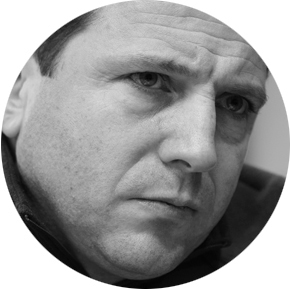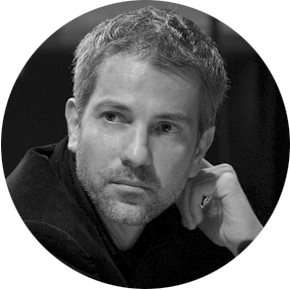Mediamax’s exclusive interview with Minister of Defense of Armenia Davit Tonoyan
Mr. Minister, sometimes it seems as if the Armenian public does not have a rational understanding of the terms “war” and “peace”.
I don’t think so. I suppose the issues with perception of peace have to do with the unstable situation we have in terms of security.
The understanding of war is very clear, because it is difficult to find a family in Armenia, which is not connected with the military one way or another. The perception about war is actually very keen in Armenian society, and people estimate the threat very rationally.
In recent months the OSCE Minsk Group mediators spoke of “preparing the societies to peace” and those remarks often received a negative reaction from the public. Why are people worried about the preparations to peace?
I think the authors of that term gave it a meaning that somewhat differs from the one Armenians assign to it. Peace is viewed as defeat due to the instability in security, which I’ve mentioned, and to the behavior of the military and political leadership of Azerbaijan.
That is what I meant when I said that the perception is not rational. Why is the talk of peace viewed so negatively?
It is a result of the approach that ruled in Armenia for many years: act defensively, get by with what little you have.
Another problem is that some members of the society do not understand what had been going on before the ceasefire in 1994. People often have faulty comprehension of where we stand, what problems we are solving, what mission we carry. It sounds offensive to me when some parents say: “Why should my son serve in the Defense Army of Artsakh?” It is no less offensive when serving in Artsakh is viewed as punishment or misfortune.
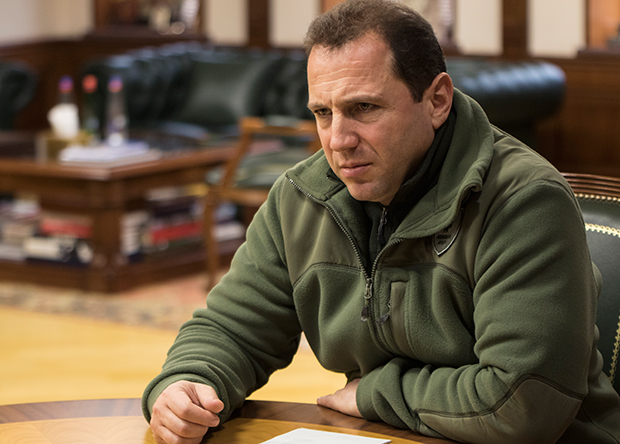 Davit Tonoyan
Davit TonoyanPhoto: Mediamax
We have these problems within the society and we have to solve them. People need to understand and value victory.
Sometimes people are affected by the information policy of our neighbor, as Azerbaijan keeps claiming that it is so strong, so powerful. Azerbaijan might think it has the monopoly on speaking about victories or territories, but Azerbaijan does not have it and never will.
How informed are you about the negotiation process? Do you receive updates after the Foreign Minister and Prime Minister meet with their Azerbaijani counterparts?
I cannot say to what extent the previous Ministers of Defense were informed about the negotiation process, but the information and knowledge I have is enough for me and the Chief of General Staff to organize our work properly.
As I have mentioned before, the main task of the military is to secure favorable conditions for the political leadership of the country to conduct negotiations.
In July of 2018 you released your vision of development of Armenia’s defense, which received an underwhelming discussion among experts and political figures, in my opinion. One of the key points of your strategy indicated the following: “We need to undergo a conscious transformation and replace the sense of obligation with the sense of mission.” What should be done to turn these words into actions? Was there no sense of mission before?
I put the emphasis on our entire society, not only the Armed Forces and the defense system.
When the public thinks of the army solely as an executor of duty, it means that the army has a limited number of issues to solve. Both Armenian people and army need to set goals with an ascending line, and these objectives have to be based on a mission. We cannot limit ourselves with regulations, time, or distance. When we are guided by a mission, we do more than we thought, more than we planned and more than we could.
After the political changes of last year in Armenia, law enforcement agencies focused both on the army (the “March 1” case) and the people who had a role in building it: Manvel Grigoryan, Yuri Khachatryan, Mikael Harutyunyan, Seyran Ohanyan. The command staff of the Artsakh Defense Army saw a few changes in personnel. You can often hear that there is a targeted campaign against the Armed Forces.
First of all, we have to wait for the conclusion of the judicial procedures in a sober manner. I firmly believe that the connection with the events of March 1, 2008 was not initiated by the army. The Armed Forces were involved in certain actions, and if the investigation proves that some of these actions were wrongful, the guilty parties must be punished.
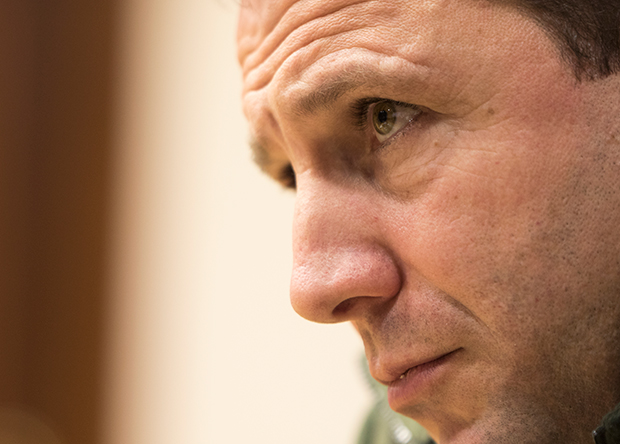 Davit Tonoyan
Davit TonoyanPhoto: Mediamax
As for the army’s role in the country, the Prime Minister and I agree that the Armed Forces must never again become involved in political, pre- or post-electoral processes.
You mention in your strategy that “no instance of corruption can be allowed in the army”. Are there such instances at the moment?
The risk level remains quite high, but we are working on reducing it. Corruption in the army is not so much the reason, as the consequence of certain problems such as lack of resources, desire to solve social issues, unfulfilled institutional arrangements, and the size of the army, which does not correspond with the economic capacity of the country.
What do we define as instances of corruption?
The main problem is the procurement, as the risk level is traditionally high in closed systems. I also have to speak very openly about the fact that the current procurement legislation creates significant opportunities for corruption.
You wrote in your 2018 strategy: “We will not allow the adversary to speak with us from the position of force and pursue maximalist objectives in the process of the conflict settlement, however long it goes on”. Opponents of the government claim that the agreement to reduce tensions, which Pashinyan and Aliyev reached in autumn 2018, restricts the Armenian forces when they need to talk to the adversary in the terms of force.
We do not feel restricted in any way. The agreement not to target each other has been upheld so far, but if the adversary tries something, we will deliver strict punishment.
In February of 2016, around two months before the April war, when you were serving as First Deputy Minister of Defense, you said that the Armenian forces would “shift from static defense to the policy of deterrence”. Did you apprehend an escalation?
I would not say I had a premonition. It was simply cold calculation.
You said in New York City recently that you planned to increase the number of attacking units, which could carry out military actions in the enemy’s territory. Can you give any details about these units?
They are units tasked with special operations, which will enable us to move the action to the enemy’s territory, if necessary. In case of provocation, we will face the adversary in their own territory.
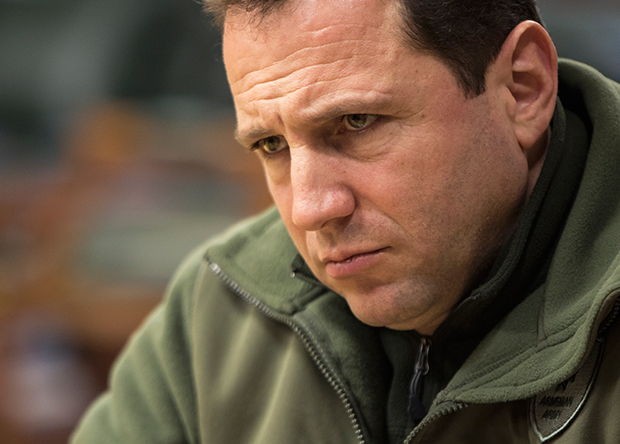 Davit Tonoyan
Davit TonoyanPhoto: Mediamax
Will we give the so-called “asymmetric” response?
We will deter the adversary to prevent similar actions in the future. I am talking about unconventional actions. If necessary, our vanguard units can cause chaos in the adversary’s rear.
So, for instance, if Armenian forces face a provocation in point A, can they strike back in point B?
Not only point B. Count points C, D, E, etc. in as well.
After you were appointed Minister of Defense, the Armed Forces started working towards equipping the army with multifunctional military planes. Should that move also be viewed in the context of abandoning static defense?
You may consider this a case of “asymmetric response”. We will be able to impact the adversary on a significant distance.
You have worked with Prime Minister Nikol Pashinyan for almost a year. Are you satisfied with the workplace relationship with him?
We are in touch every day. The Prime Minister is very attentive to the army, the same as all Armenian leaders. He understands our issues very well and he is sincerely committed to solving them.
You have worked under Serzh Sargsyan for many years. When you agreed to take a minister’s position in Nikol Pashinyan’s government, some people called it “betrayal”. What would you say to these people?
If someone considers becoming a Minister of Defense to be “betrayal”, the problem is in their mentality.
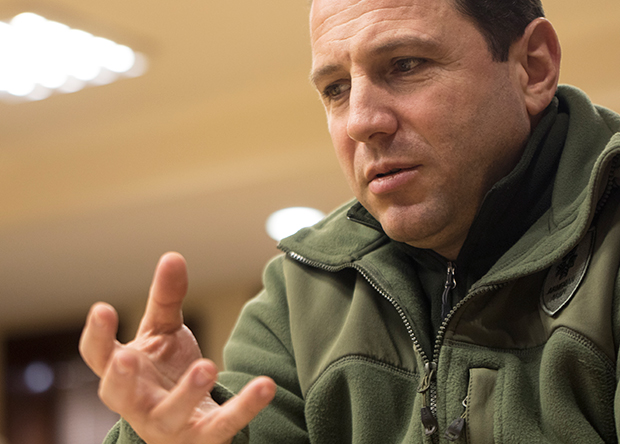 Davit Tonoyan
Davit TonoyanPhoto: Mediamax
I am convinced that the defense system must stay firm and stable in case of any political change in Armenia. Every defense leader before me adhered to the same principle, in all periods of time.
Mr. Minister, your son is serving in Artsakh and the major part of your work is related to the possibility of a new war in Artsakh. How does that make you feel?
I feel that my son, Edgar, needs more of my attention.
Ara Tadevosyan talked to Davit Tonoyan
Photos: Emin Aristakesyan









